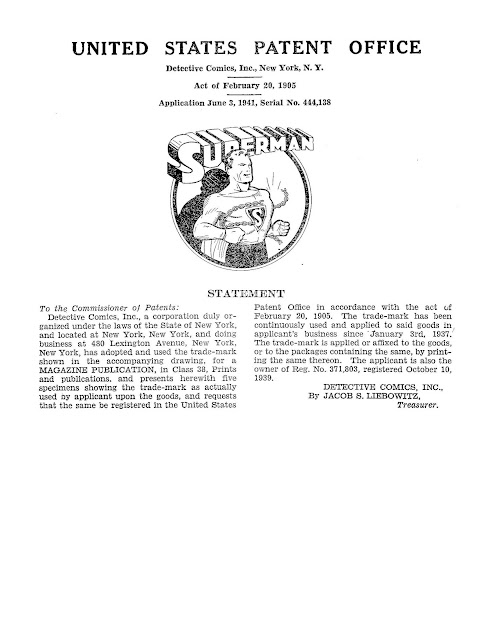"Don't forget that the termination right trumps what's written in the agreement."
Works for hire are immune to statutory termination, which is why you should be wary of signing a work for hire agreement. The concept of work for hire is complicated. Therefore, just because a contract says it is work for hire or created in the course of employment does not make it so. For clarification, contract a copyright attorney.
If you wish to terminate a rights agreement careful implementation is required. You must (a) carefully calculate the termination date; (b) draft the notice of termination; (c) sign it; (d) serve it; and (e) submit the documents for recordation (with the recordation fee) electronically through the Copyright Office’s online system. The documents will then be scrutinized by the Copyright Office and rejected if they do not comply in both content and form.
termination rights expire without being exercised.
It is the author's responsibility to calculate the termination date. It can be anytime during a five-year window beginning the earlier of (a) thirty-five years from the date of first publication or (b) forty years from the date of execution. A notice of termination may be served ten years before the effective termination date or as late as two years before. A missed deadline or improperly drafted notice is a fatal mistake.
Andrea must serve the notice on her publisher or publisher's successor, fill out the appropriate paperwork, and record the notice of termination with the Copyright Office. This public record becomes part of the work's chain of title, establishing legal ownership. Andrea's name and termination notice would appear in the title chain if anyone were to review the Copyright Office's database.
Derivative Works Exception
Within the framework of copyright law's "derivative works exception," a derivative work created before termination retains the right to be utilized according to the terms of the license agreement. To illustrate, a film adaptation of Andrea's novel can still be streamed after termination, with the stipulation that the studio is obligated to report to Andrea. However, it is important to note that the studio is restricted from generating new derivative works falling under the terminated grant of rights.
For works published before January 1, 1978, the maximum term of protection for certain works was 56 years. Over time, Congress increased the term of copyright protection from 56 to 75 years. In 1998 Congress increased the term again by 20 years for a total of 95 years. Congress also created a new right of termination for pre-1978 grants, licenses, and assignments.
Fortunately, you don't have to be related to a man of steel to reclaim copyrights. The heirs of Hank Williams, William Saroyan, Truman Capote, Joe Young, Lorenz Hart, and many others have availed themselves of these valuable rights.
Estate Planning Considerations
Hoping they will catch family members off guard, publishers and motion picture studios may make offers to sweeten existing contract terms after an author dies.
Before signing an agreement that revokes and re-grants rights, family members should carefully review the document and consult with a termination rights attorney. If asked to sign during the period termination could be effected, they may be waiving their right to terminate.
If that later agreement revokes a publishing agreement, or film option, in exchange for a new contract, the new contract should be a significantly better deal than the previous grant. If not, they've lost the opportunity to renegotiate the terms of the agreement.
Bottom LineCall us if you are thinking about exercising your termination rights or need assistance renegotiating your entertainment or publishing agreement. Fees will depend upon the complexity of the matter and the number of works being terminated. We can help you: (i) identify which copyrights are eligible for termination; (ii) determine who is the proper party to exercise those termination rights; (iii) prepare and record the notice of termination; (iv) help you renegotiate your existing contract; or (v) work with your trusts and estates attorney on reopening an estate, or seeking copyright damages that flow from a determination of ownership or co-ownership of a recaptured copyright.
NOTICE: This article discusses general legal issues of interest and is not designed to give any specific legal advice pertaining to any specific circumstances. It is important that professional legal advice be obtained before acting upon any of the information contained in this article.
LLOYD J. JASSIN is a book publishing attorney and former publishing executive with a special interest in defamation, copyright, and trademark matters. He is co-author of The Copyright Permission and Libel Handbook: A Step-by-Step Guide for Writers, Editors, and Publishers (John Wiley & Sons). He has written extensively on negotiating contracts in the publishing and entertainment industries and has been quoted extensively in publications such as the New York Times, Time Magazine, Forbes, Fortune, Publishers Weekly, and the Columbia Journalism Review. You may reach him at jassin@copylaw.com or at (212) 354-4442. His offices are located at 1501 Broadway, Floor 12, New York, NY 10036, and in Madison, NJ.
(c) 2011 - 2024. Lloyd J. Jassin


